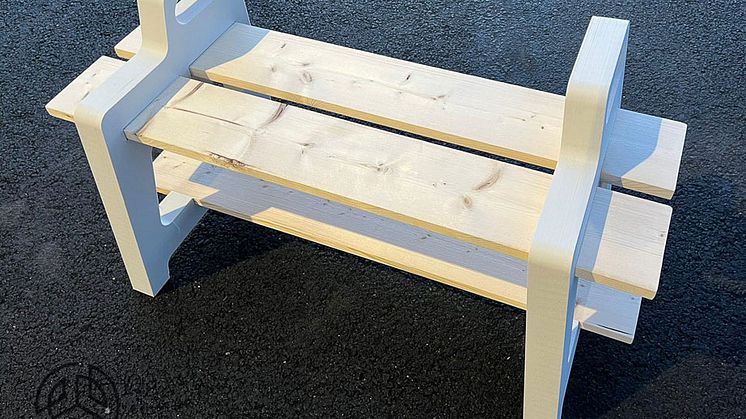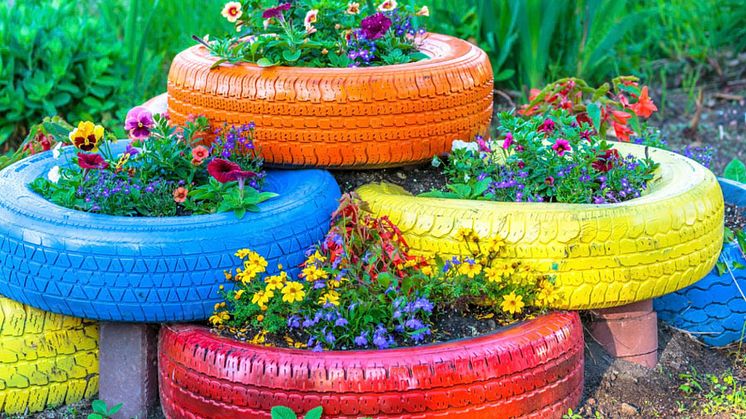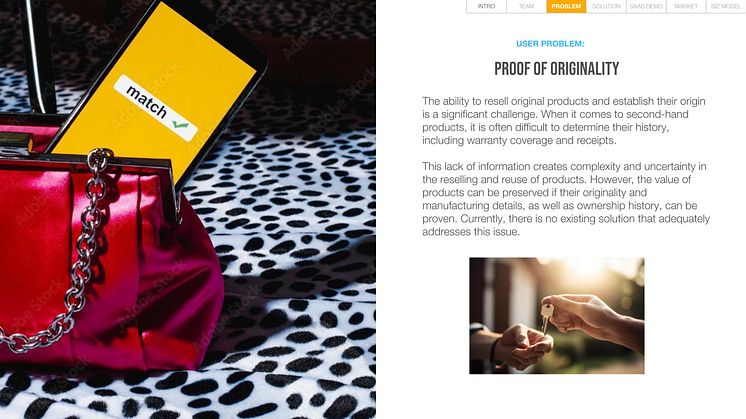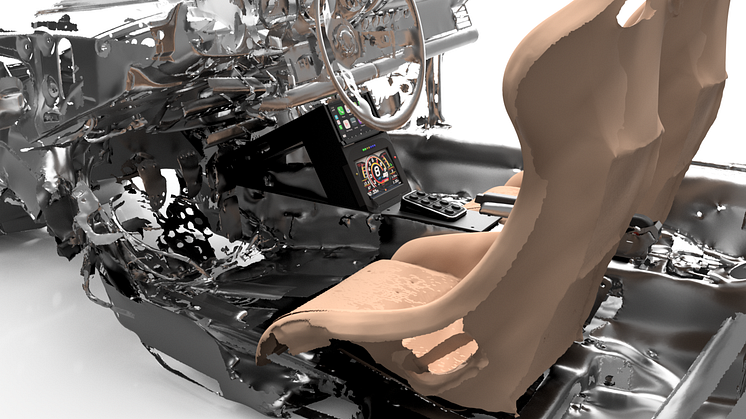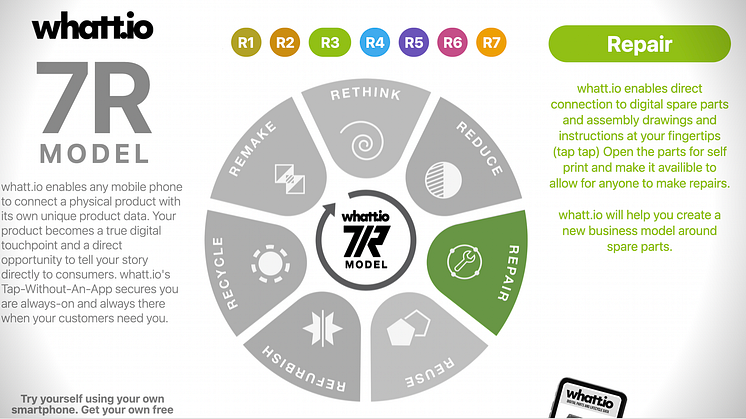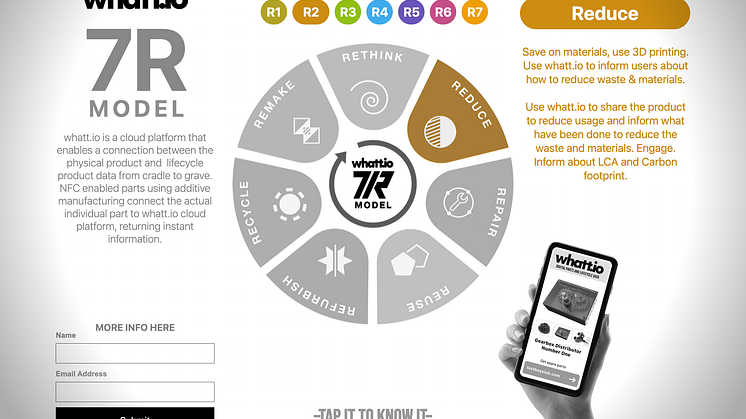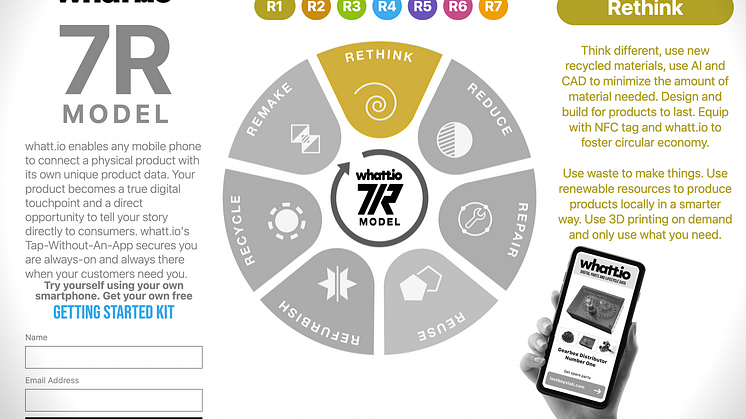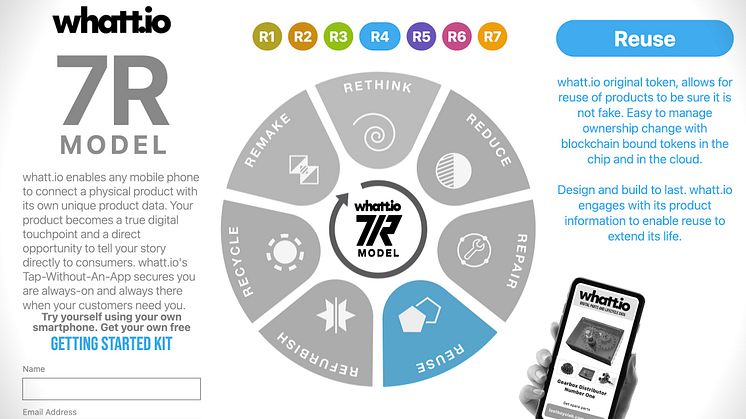
Blog post -
Reuse: The 4th Principle of the 7R Model
Reuse, the act of extending a product's lifecycle rather than discarding it after a single use, is a key component of a sustainable economy.
By reusing, we conserve resources, reduce waste, and minimize the environmental impact of new production. But to fully leverage these benefits, clear strategies and systems need to be in place, promoting not only the practice of reuse but also the recycling of products.
Designing products for reuse is a viable strategy. "Design for disassembly" is an approach that uses materials and components which can easily be reformed into new products. Another valuable method is the promotion of repair and refurbishment, extending the usability of products.
A pivotal element in the reuse process is ensuring that knowledge and information on how to reuse is readily available. This is where the whatt.io platform steps in, bridging the gap between the physical product and its information.
Existing reuse initiatives, such as "clothing libraries" in fashion or salvaging materials in construction, have proven successful. But for high-quality, sustainable products, a system of authenticity and ownership is crucial. This is where NFC tags (small non-battery ID chips that can be read from any mobile phone) through whatt.io can facilitate the reuse process.
A digital ownership system that is trusted and traceable, can boost consumer confidence in the product's authenticity and quality. Furthermore, this system can increase the value of reused products, providing a clear history of the product's provenance.
In the grand scheme of reuse, designers have to prioritize the product's lifecycle extendability. Durable, long-lasting, easy-to-repair, and maintainable products reduce the need for replacements and thus minimize waste. Additionally, designers should consider the potential change of ownership throughout the product's lifecycle, designing for resale value and ensuring systems that ease the selling process of used goods are in place.
Documenting the reuse process through platforms like whatt.io ensures traceability. Every item produced can be tracked, facilitating reuse and providing consumers with greater confidence in the product's authenticity and quality. This documentation can prevent wastage due to a lack of provenance information.
As manufacturers and designers, our responsibility lies in creating products designed for reuse. At Lostboyslab, we pride ourselves on being part of the whatt.io community. By using technology to increase the value of used products and improve processes for reuse and resale, we can enhance the provenance and authenticity of products, appeal to second-hand buyers, and ultimately contribute to a more sustainable and efficient economic system.
